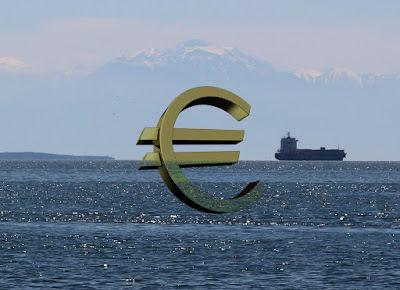Greed and fear: the end of investment banking
market controlled by fear and rumours and short sellers are driving
our stock down."
At the start of the year, I asked in one of my blog posts: "After
Nothern Rock, Bear Sterns, who will be next?" Well we have now the
answer: it is Lehman Brothers and AIG that went under. Lehman is now
under administration and AIG has been refinanced by the US government.
This prompts two comments.
1. It is traditional, considered low risk institutions that have been
hit the hardest by this financial crisis, and not the sophisticated
and highly criticised institutions like hedge funds or private
equities. Indeed, AIG was rated AAA by Standard and Poors no sooner
than a few days ago.
2. The business model of investment banking itself seems to be broken.
Hence, the last decade has seen the disappearance of Bearing's,
JPMorgan, Bear Sterns and Lehman Brothers as independant entities( and
even disappeared completely in the case of the first and last one).
And the last two major independant investment banks, Morgan Stanley
and Goldman Sachs, are currently in merger talks with better financed
retail banks while their stock price plummets (MS shares were down 25%
today). The cause of this meltdown is excessive investments in credit
derivatives and other mortgage backed securities. Those securities
were considered safe based on historical analysis but their value
decreased significantly as the housing market went from bubble to
burst and the economy headed towards recession (Nota: the only market/
economy that matters, the US one). As the value of their assets
decreased, the banks have to write down millions of dollars of mark to
market losses. In other words, their liabilities increase compared to
their assets. As their ratio of assets to liabilities deceases,
investors sell the bank's share because the bank is deemed more risky.
And as the ratio of debt to equity increases, notation agencies
downgrade the bank, which makes funding more expensive to the bank.
And it is a vicious circle because higher funding costs means lower
profits (or more losses), which leads to a loss of confidence by
investors and clients alike, up to a point where nobody wants to do
business with the bank as it is considered a too risky counterperty.
So how did we get there? Greed of course. Banks are supposed to be
intermediaries between some investors who are willing to take on risks
in order to get higher returns from their money and companies or
individuals in need of financing for their activities. So banks should
transfer risks from one class to another and benefit from an increase
in the flow. Unfortunately, as bankers have seen some of their clients
- the Hedge Funds - make millions of profits from buying the products
that they were creating, they thought - we want our share of the pie
-. So instead of passing on the risk to another investor, they acted
as a counterparty themselves, thus making double profit: from the
transaction fee and from owning the product. But history has shown the
flaw in this approach: while hedge funds understood the risks they
were taking, banks ended up taking the same risks by fear of being
overtaken by competition, but without fully understanding what they
were exposed to. Hence (most) hedge funds managed to get out of those
risky products when the wheel started to turn, but investment banks
are stuck with this poison pill.


Comments
Post a Comment